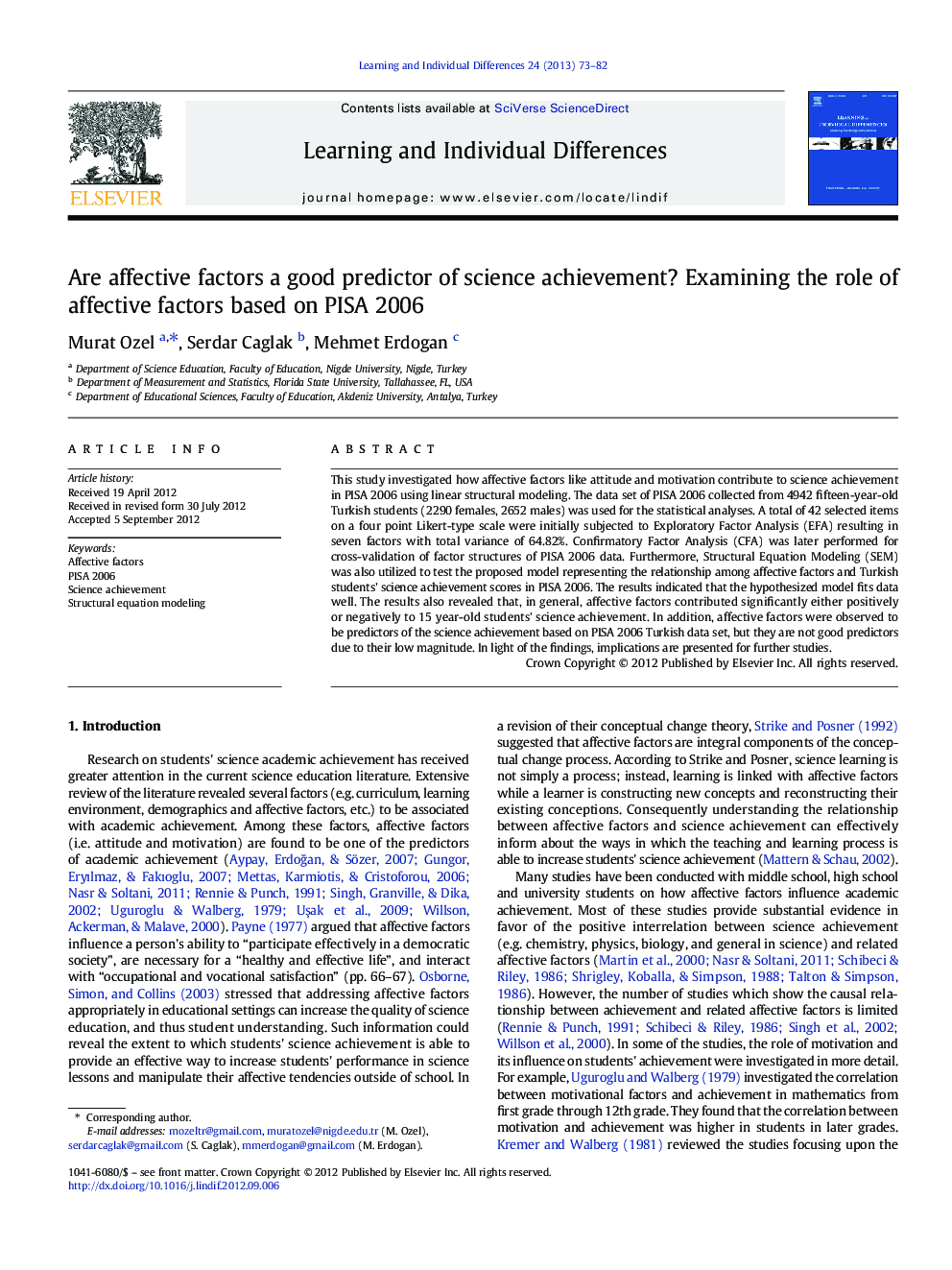| کد مقاله | کد نشریه | سال انتشار | مقاله انگلیسی | نسخه تمام متن |
|---|---|---|---|---|
| 364912 | 621097 | 2013 | 10 صفحه PDF | دانلود رایگان |

This study investigated how affective factors like attitude and motivation contribute to science achievement in PISA 2006 using linear structural modeling. The data set of PISA 2006 collected from 4942 fifteen-year-old Turkish students (2290 females, 2652 males) was used for the statistical analyses. A total of 42 selected items on a four point Likert-type scale were initially subjected to Exploratory Factor Analysis (EFA) resulting in seven factors with total variance of 64.82%. Confirmatory Factor Analysis (CFA) was later performed for cross-validation of factor structures of PISA 2006 data. Furthermore, Structural Equation Modeling (SEM) was also utilized to test the proposed model representing the relationship among affective factors and Turkish students' science achievement scores in PISA 2006. The results indicated that the hypothesized model fits data well. The results also revealed that, in general, affective factors contributed significantly either positively or negatively to 15 year-old students' science achievement. In addition, affective factors were observed to be predictors of the science achievement based on PISA 2006 Turkish data set, but they are not good predictors due to their low magnitude. In light of the findings, implications are presented for further studies.
► Affective factors with respect to PISA 2006 have not been widely studied.
► PISA provides a unique data to examine the relationship between affective factors and achievement.
► Affective factors contributed to 15 years-old students’ science achievement to some extent.
Journal: Learning and Individual Differences - Volume 24, April 2013, Pages 73–82